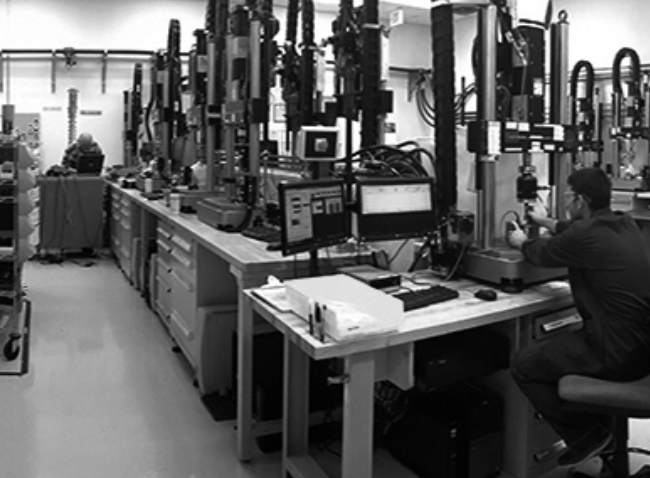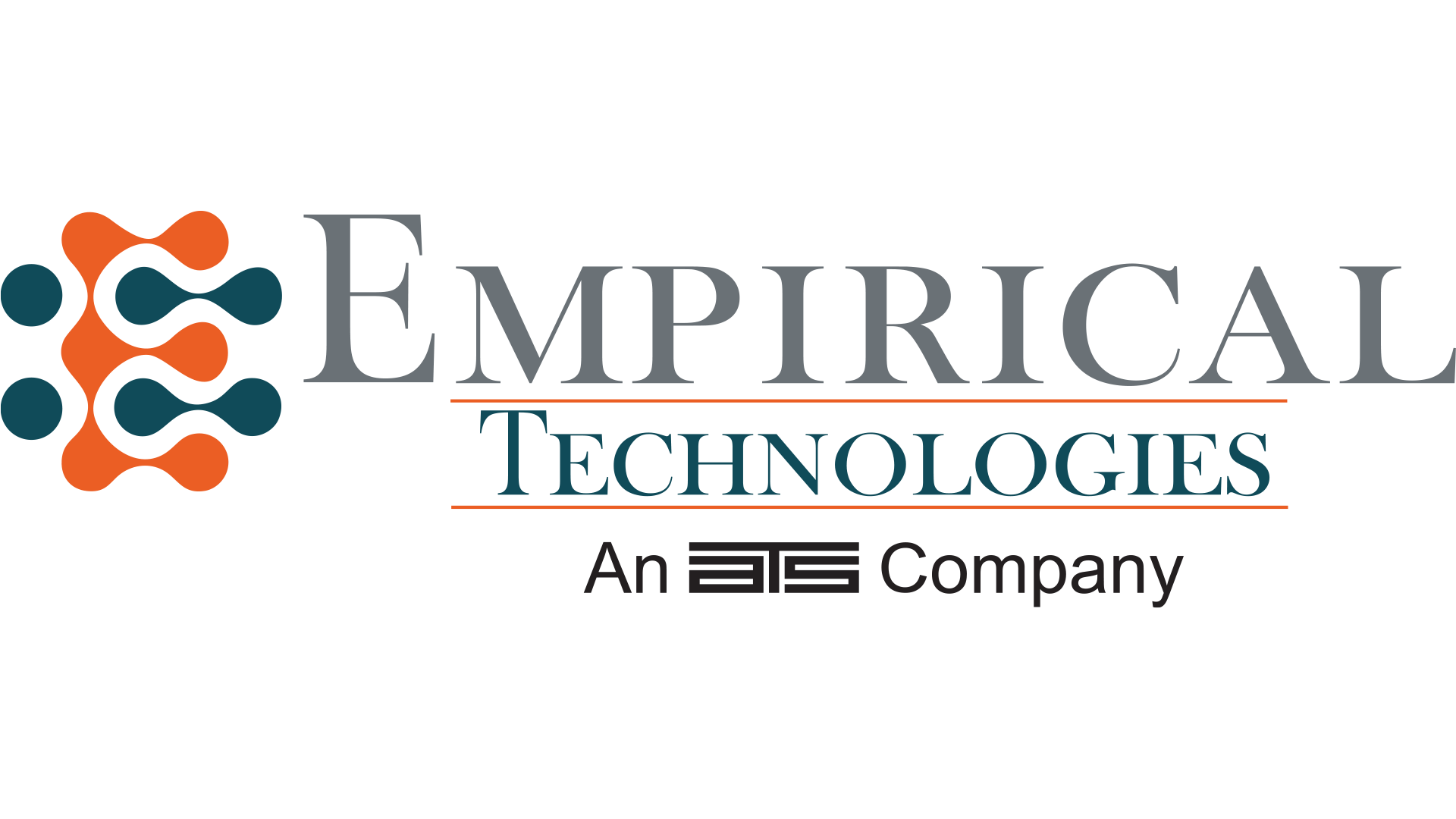Medical Device Testing Services
Testing Expertise Serving the Medical Industry
What Is Medical Device Testing?
Services by Device Regulations

Services by Medical Devices
- ASTM F2554: Standard Practice for Measurement of Positional Accuracy of Computer Assisted Surgical Systems
- ASTM F1672, SECTION 6.3.1: Standard Specification for Resurfacing Patellar Prosthesis
- ASTM F1829: Standard Test Method for Static Evaluation of Anatomic Glenoid Locking Mechanism in Shear
- ASTM F1044: Standard Test Method for Shear Testing of Calcium Phosphate Coatings and Metallic Coatings
- ASTM F1147: Standard Test Method for Tension Testing of Calcium Phosphate and Metallic Coatings
- ASTM F1160: Standard Test Method for Shear and Bending Fatigue Testing of Calcium Phosphate and Metallic Medical and Composite Calcium Phosphate/Metallic Coatings
- ASTM F1875, EXCEPT 9.1.8 & 10.0: Standard Practice for Fretting Corrosion Testing of Modular Implant Interfaces: Hip Femoral Head-Bore and Cone Taper Interface
- ASTM F1978: Standard Test Method for Measuring Abrasion Resistance of Metallic Thermal Spray Coatings by Using the Taber Abraser
- ASTM F2129: Standard Test Method for Conducting Cyclic Potentiodynamic Polarization Measurements to Determine the Corrosion Susceptibility of Small Implant Devices
- ISO 10328: Prosthetics — Structural Testing of Lower-Limb Prostheses. Learn more about ISO 10328 with Empirical
Bone Fixation and Reinforcement
- ASTM F382: Standard Specification and Test Method for Metallic Bone Plates
- ASTM F384: Standard Specifications and Test Methods for Metallic Angled Orthopedic Fracture Fixation Devices
- ASTM F543: Standard Specification and Test Methods for Metallic Medical Bone Screws. Learn more about ASTM F543 with Empirical
- ASTM F564: Standard Specification and Test Methods for Metallic Bone Staples
- ASTM F1264: Standard Specification and Test Methods for Intramedullary Fixation Devices
- ASTM F1541: Standard Specification and Test Methods for External Skeletal Fixation Devices. Learn more about ASTM F1541 with Empirical
- ASTM F2183: Standard Test Method for Small Punch Testing of Ultra-High Molecular Weight Polyethylene Used in Surgical Implants
- ASTM F2502: Standard Specification and Test Methods for Bioabsorbable Plates and Screws for Internal Fixation Implants
Hip
- ASTM F1820:Standard Test Method for Determining the Axial Disassembly Force of a Modular Acetabular Device
- ISO 7206-4: Implants for Surgery — Partial and Total Hip Joint Prostheses — Determination of Endurance Properties and Performance of Stemmed Femoral Components. Learn more about ISO 7206-4 with Empirical
- ISO 7206-6: Implants for Surgery — Partial and Total Hip Joint Prostheses — Determination of Endurance Properties of Head and Neck Region of Stemmed Femoral Components
- ISO 7206-8: Implants for Surgery – Partial and Total Hip Joint Prostheses – Endurance Performance of Stemmed Femoral Components with Application of Torsion
Joint
- ASTM F1781: Standard Specification for Elastomeric Flexible Hinge Finger Total Joint Implants
- Section 6.2: Range of Motion of the Device Before Implantation
- ASTM F1820:Standard Test Method for Determining the Axial Disassembly Force of a Modular Acetabular Device
- ASTM F2028: Standard Test Methods for Dynamic Evaluation of Glenoid Loosening or Disassociation
- ASTM F2118: Standard Test Method for Constant Amplitude of Force Controlled Fatigue Testing of Acrylic Bone Cement Materials
Knee
- ASTM F1800: Standard Test Method for Cyclic Fatigue Testing of Tibial Tray Components of Total Knee Joint Replacements
Wrist
- ASTM F1223: Standard Specification for Articulating Total Wrist Implants. Learn more about ASTM F1223 with Empirical
- ASTM F1357: Standard Specification for Articulating Total Wrist Implants. Learn more about ASTM F1357 with Empirical
- Section 6.3: Range of Motion of the Device Before Implantation
- ASTM F1717: Standard Test Methods for Spinal Implant Constructs in a Vertebrectomy Model. Learn more about ASTM F1717 with Empirical
- ASTM F1798: Standard Guide for Evaluating the Static and Fatigue Properties of Interconnection Mechanisms and Subassemblies Used in Spinal Arthrodesis Implants
- ASTM F2077: Test Methods for Intervertebral Body Fusion Devices. Learn more about ASTM F2077 with Empirical
- ASTM F2193: Standard Specifications and Test Methods for Components Used in the Surgical Fixation of the Spinal Skeletal System
- ASTM F2267: Standard Test Method for Measuring Load Induced Subsidence of an Intervertebral Body Fusion Device under Static Axial Compression
- ASTM F2346: Standard Test Methods for Static and Dynamic Characterization of Spinal Artificial Discs. Learn more about ASTM F2346 with Empirical
- ASTM F2423: Standard Guide for Functional, Kinematic, and Wear Assessment of Total Disc Prostheses
- ASTM F2624: Standard Test Method for Static, Dynamic, and Wear Assessment of Extra-Discal Spinal Motion Preserving Implants
- ASTM F2694: Standard Practice for Functional and Wear Evaluation of Motion-Preserving Lumbar Total Facet Prostheses
- ASTM F2706:Standard Test Methods for Occipital-Cervical and Occipital-Cervical-Thoracic Spinal Implant Constructs in a Vertebrectomy Model
- ASTM F2789: Standard Guide for Mechanical and Functional Characterization of Nucleus Devices (Except Viscoelastic Testing)
- ASTM F2790: Standard Practice for Static and Dynamic Characterization of Motion Preserving Lumbar Total Facet Prostheses. Learn more about ASTM F2790 with Empirical
- ISO 12189: Implants for Surgery — Mechanical Testing of Implantable Spinal Devices — Fatigue Test Method for Spinal Implant Assemblies Using an Anterior Support
- ISO 18192-1: Implants for Surgery — Wear of Total Intervertebral Spinal Disc Prostheses — Loading and Displacement Parameters for Wear Testing and Corresponding Environmental Conditions for Test. Learn more about ISO 18192-1 with Empirical
- ASTM F1378: Standard Specification for Shoulder Prostheses. Learn more about ASTM F1378 with Empirical
- ASTM F1714: Standard Guide for Gravimetric Wear Assessment of Prosthetic Hip-Designs in Simulator Devices
- Annex 4: Method for Cleaning and Weighing of Specimens Only
Services by Type of Test
- Tensile
- Shear
- Sterility
- Stability
- Biocompatibility
- Harness
- Taber
- Fatigue
- Device
- Cytotoxicity
- Torsion
- Implant
- Compression
- Dynamic
- Abrasion
- Electrical
- Usability
Why Choose Empirical Technologies for Medical Device Testing?
Empirical Technologies expert team regularly gets the job completed 20-30% faster than the industry average.

Understanding Medical Device Testing
Effective Medical device testing requires an exhaustive amount of stress and accuracy testing to ensure the designs will function and fulfill their purposes for years to come. At Empirical Technologies, we’ll push your design to its limits to find weaknesses or deficiencies to help get your device to market and clear the regulatory process.
-
Tensile
A force applied to something which puts it in a stretched state. -
Shear
A force acting in a direction parallel to a surface or to a planar cross section of the body. -
Torsion
The twisting of an object due to applied torque. -
Wear & Simulation
Testing by damaging, gradual removal or deformation of material at the solid surface. Wear testing of medical devices is done on a specific simulator which represents the motions of the body, for example in spine, the motions would include flexion-extension, lateral bending, and axial rotation. -
Taber Abrasion
Determines a material’s ability to withstand mechanical action such as rubbing, scraping, or erosion.
-
Instrument and Life Cycle
Testing of instruments in a range of motions relevant to the instrument use and functions to deliver data on product durability. -
Dedicated Screw Testing
Testing of screws which often includes a driving torque test, a torsional test and screw pullout testing. -
Lot Verification Testing
Testing which is done on various lots over time to monitor the consistency of the produced lots. -
Non-Standard/Custom Testing
Testing that does not have a specific standard. Oftentimes this is needed to test a unique feature of a device that does not fall within the guidance of formalized standard documents and requires testing to provide mechanical characterization and confidence in the device or the device feature.
The Importance of Medical Device Testing
Faster Design-to-Market
What Makes Our Lab Different?
Efficient and Purposeful Tests
With experience in all three classes of device testing, our team prioritizes efficient and purposeful tests and data collection/reporting that get devices to market 20-30% faster than the industry standard. Our knowledgeable coordinators, regulatory specialists, accountants, managers, machinists, engineers, and controllers keep track of the processes, developments, and changes in medical testing to expedite the process while keeping both you and the agencies involved up-to-date. Let us take the guesswork out of understanding regulations and requirements.
Unbiased Expertise
Since 1998, Empirical Technologies has partnered with clients to help them easily navigate testing processes, using technicians with unbiased expertise to mitigate testing risks. With thousands of successful projects behind us, we work hard to ensure that designs configured get tested thoroughly to account for any errors that may show up in the field. Our goal to be THE standard for medical testing means that we’ll use our experience and perspectives to guide you toward the right solution for your needs using up-to-date dependable, transparent, and useful tests.
Keeping Data and Process Transparent
Let Empirical Technologies take the fear and uncertainty out of your medical testing. We sit down with our clients to review every project and merge our mechanical testing service team into yours to keep data and progress transparent. Our extensive and custom testing processes can meet any need, and we keep the goal of approval and reality costs up front and center to avoid any foreseeable financial and logistical surprises. Call or email us today to get in touch with a Partnership Manager to request an estimate and start getting your designs to market!
